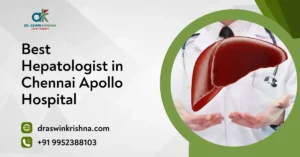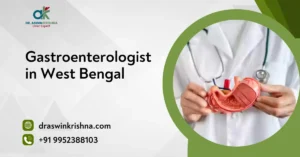Treatment for enlarged liver is something many people look up when their doctor tells them their liver is larger than normal. It can sound worrying, but many times, this condition can be managed well or even reversed if caught early. Your liver is a powerful organ that does many important jobs, like cleaning your blood and helping your body digest food. If it becomes too large, it’s a sign that something may be wrong and needs attention.
What is an Enlarged Liver?
An enlarged liver, also known as hepatomegaly, occurs when the liver increases beyond its normal size due to inflammation, fat accumulation, infection, or underlying diseases. It may signal conditions like fatty liver, hepatitis, or heart-related issues. Identifying the cause early is essential for effective Treatment for enlarged liver, as it helps prevent complications and supports the possibility of recovery through medical or natural treatment for enlarged liver methods.
Symptoms
Understanding enlarged liver symptoms is crucial for early identification and appropriate Treatment for enlarged liver. The signs may develop gradually or suddenly, depending on the underlying cause. Common enlarged liver symptoms include:
- Abdominal fullness or discomfort: A feeling of heaviness or pressure in the upper right abdomen occurs as the liver expands and presses against surrounding organs.
- Pain in the upper abdomen: Dull or sharp pain under the ribs, especially on the right side, can be a sign of liver inflammation or enlargement.
- Nausea and loss of appetite: A swollen liver can interfere with digestion, leading to queasiness, reduced appetite, and unintentional weight loss.
- Fatigue and weakness: Persistent tiredness results from the liver’s reduced ability to filter toxins and regulate energy metabolism.
- Jaundice: Yellowing of the skin and eyes indicates that bilirubin, a liver byproduct, is not being processed efficiently.
- Swelling in legs and abdomen: Fluid accumulation, or edema, may result from impaired liver function or blocked blood flow through the organ.
- Dark urine and pale stools: These changes reflect impaired bile flow, often linked to liver dysfunction.
- Itchy skin: Bile salt accumulation beneath the skin can cause persistent itching, signaling the need for Treatment for enlarged liver.

When to See a Doctor
Recognizing when to consult a healthcare professional for Treatment for enlarged liver can prevent further complications. Seek medical advice immediately if any of the following occur:
- Persistent abdominal discomfort or swelling: Continuous pain or bloating in the upper abdomen may indicate significant liver inflammation or obstruction.
- Jaundice and dark urine: These are clear signs of liver dysfunction and should not be ignored, as Is an enlarged liver dangerous depends largely on timely treatment.
- Unexplained fatigue or weight loss: When weakness, appetite loss, or rapid weight changes persist, they may signify underlying liver disease.
- Swelling in legs or ankles: Fluid buildup can indicate advanced liver damage, requiring prompt medical evaluation.
- Vomiting blood or tar-colored stools: These symptoms may suggest gastrointestinal bleeding related to liver issues.
- Mental confusion or disorientation: Elevated toxins in the bloodstream due to poor liver function can affect brain function, a condition known as hepatic encephalopathy.
- History of liver disease or heavy alcohol use: People with these risk factors should have regular check-ups to monitor liver health and start Treatment for enlarged liver early if needed.
Causes
Understanding what causes enlarged liver helps identify the right Treatment for enlarged liver. The condition can result from several underlying health issues, such as:
- Alcohol-related liver disease: Chronic alcohol use leads to inflammation and scarring, a common cause of liver enlargement.
- Nonalcoholic fatty liver disease (NAFLD): Fat accumulation in the liver, often linked to obesity or diabetes, causes enlargement and inflammation.
- Hepatitis infections (A, B, or C): Viral infections can trigger liver swelling and damage, often requiring antiviral therapy as part of the Treatment for enlarged liver.
- Genetic or metabolic disorders: Conditions like hemochromatosis or Wilson’s disease result in excessive iron or copper buildup, causing liver enlargement.
- Heart failure or blocked veins: Poor blood flow to the liver due to cardiac issues can lead to congestion and swelling.
- Cancer or cysts: Tumors, whether primary or metastatic, may enlarge the liver due to tissue expansion.
- Drug or toxin exposure: Prolonged use of medications such as acetaminophen or exposure to chemicals can injure the liver.
What causes enlarged liver can vary, but early detection ensures that Treatment for enlarged liver is more effective.
Risk Factors
Certain conditions and habits increase the likelihood of developing an enlarged liver. Recognizing these helps prevent complications and ensures timely Treatment for enlarged liver.
- Excessive alcohol intake: Chronic alcohol consumption is one of the leading causes of liver enlargement and damage.
- Obesity and diabetes: These metabolic disorders increase fat buildup in liver cells, leading to inflammation and swelling.
- High cholesterol and triglyceride levels: Elevated lipids contribute to fatty liver disease, a major risk factor for enlargement.
- Viral hepatitis infections: Exposure to hepatitis B or C increases long-term liver damage risk.
- Use of hepatotoxic drugs: Overuse of certain medications or herbal supplements can harm the liver.
- Family history of liver disease: Genetic conditions can predispose individuals to abnormal liver growth or metabolic dysfunctions.
- Unhealthy diet and sedentary lifestyle: Lack of physical activity and high-fat diets promote fatty liver accumulation.
- Cardiac conditions: Heart diseases causing blood congestion may indirectly enlarge the liver, making Treatment for enlarged liver more complex.
Diagnosis
Accurate diagnosis is key to determining the best Treatment for enlarged liver. Doctors typically follow a systematic approach to identify the underlying cause.
- Physical examination: Palpation of the abdomen helps detect tenderness or liver enlargement.
- Blood tests: Liver function tests measure enzyme levels such as ALT and AST to evaluate inflammation or damage.
- Imaging studies: Ultrasound, CT scan, or MRI can reveal the size, texture, and presence of lesions in the liver.
- Liver biopsy: A small tissue sample helps confirm conditions like cirrhosis, hepatitis, or cancer.
- Viral screening: Tests for hepatitis A, B, or C determine if infection is responsible for the condition.
- Genetic and metabolic testing: Evaluates disorders like hemochromatosis or Wilson’s disease.
- Assessment of alcohol or drug use: Helps determine lifestyle-related causes requiring behavioral intervention.
These steps ensure the Treatment for enlarged liver targets the root cause effectively.
Prevention
Preventing liver enlargement involves lifestyle adjustments and regular health monitoring. Incorporating these measures can reduce the need for extensive Treatment for enlarged liver.
- Maintain a balanced diet: Eat foods rich in fruits, vegetables, and whole grains while limiting processed and fatty foods.
- Limit alcohol consumption: Reducing or avoiding alcohol prevents liver inflammation and scarring.
- Exercise regularly: Physical activity helps control weight and improve liver metabolism.
- Get vaccinated: Hepatitis A and B vaccinations protect against common viral infections that cause liver inflammation.
- Avoid unnecessary medications: Use drugs only under medical supervision to reduce toxin buildup in the liver.
- Monitor health conditions: Manage diabetes, cholesterol, and obesity to prevent fatty liver disease.
- Avoid exposure to toxins: Wear protective gear when handling chemicals or solvents.
Following these habits not only lowers risks but also supports Natural treatment for enlarged liver approaches.
Treatment
The Treatment for enlarged liver depends on the cause, severity, and overall health of the patient. With proper management, Can an enlarged liver be reversed is often possible.
- Lifestyle modifications: Reducing alcohol, maintaining a healthy diet, and exercising regularly can reverse fatty liver changes.
- Medication management: Antivirals for hepatitis or chelating agents for metal overload may be prescribed.
- Managing underlying diseases: Controlling diabetes, heart failure, or obesity aids in liver recovery.
- Nutritional therapy: A diet low in saturated fats and sugars helps reduce liver strain.
- Liver detox support: Certain herbs and supplements, when medically approved, may support Natural treatment for enlarged liver.
- Surgery or transplantation: Severe cases, such as tumors or end-stage liver disease, might require surgical intervention.
- Regular monitoring: Ongoing imaging and blood tests track recovery progress.
Early and appropriate Treatment for enlarged liver greatly improves outcomes and prevents complications.
Complications
If left untreated, an enlarged liver can lead to serious and sometimes irreversible damage. Therefore, timely Treatment for enlarged liver is essential.
- Cirrhosis: Chronic liver inflammation leads to permanent scarring, impairing liver function.
- Liver failure: The liver loses its ability to filter toxins, regulate nutrients, and produce essential proteins.
- Portal hypertension: Increased pressure in the veins supplying the liver can cause severe bleeding and swelling.
- Ascites: Fluid accumulation in the abdomen results from poor liver circulation and protein imbalance.
- Hepatic encephalopathy: Build-up of toxins affects brain function, leading to confusion and behavioral changes.
- Increased infection risk: A damaged liver weakens immune response, making infections more likely.
- Liver cancer: Chronic inflammation and scarring raise the risk of malignant growths.
Understanding Is an enlarged liver dangerous emphasizes the importance of early diagnosis and effective Treatment for enlarged liver to prevent these life-threatening outcomes.
Conclusion
Treatment for enlarged liver should not be delayed. The liver is a vital organ, and when it’s swollen, it’s telling you that something isn’t right. From lifestyle changes to medical treatments, there are many ways to manage or reverse the condition.
Take charge of your health. Know the signs. Know the risks. And act early. If you ever ask yourself, “Is an enlarged liver dangerous?”, the answer is yes — but not if you do something about it. Yes, can an enlarged liver be reversed? In many cases, it can. So don’t wait. Talk to your doctor and begin your journey to a healthier liver today.
Read also Is Coffee Good for Fatty Liver.




